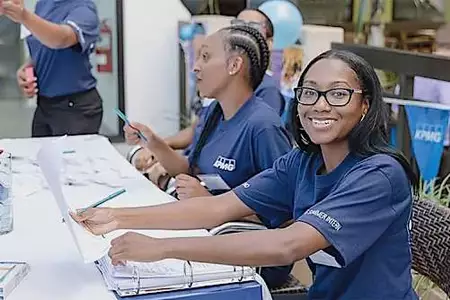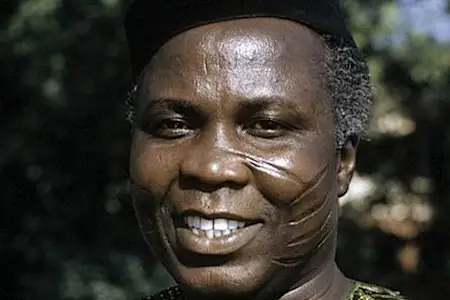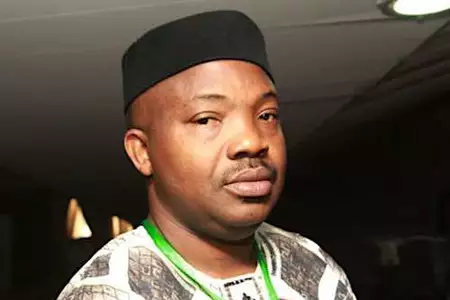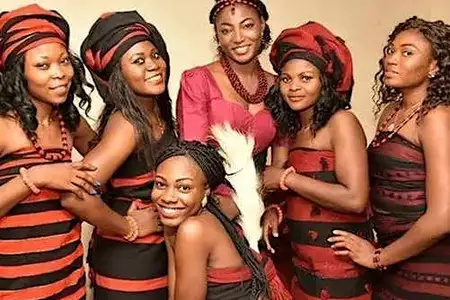By Sani Idris
An NGO, Women and Children’s Rights Empowerment Foundation (WCREF), on Friday sensitised persons with disabilities (PWDs) on the impacts of drug abuse, gender-based violence and COVID-19 on metal and psychological health.
WCREF Executive Director, Mrs Maryam Abdu, said at the sensitisation programme in Kaduna that PWDs were sensitive to policies and issues concerning the society, even if they were being marginalised and discriminated against.
The News Agency of Nigeria (NAN), reports that the one- day sensitisation was in collaboration with National Drug Law Enforcement Agency (NDLEA) and Cyrus Centre for Human Rights Education.
Abdu said that it was not proper to sensitise children, women and youths on COVID-19, GBV and drug use and neglect PWDs in such a programme that could also impact positively on them.
“People don’t specifically talk about PWDs. There are lots of people facing problems of gender-based violence, drug abuse and COVID-19 and PWDs are also part of them.
“This made us to concentrate the sensitisation on PWDs so as to know their problems and guide them on how to address them,’’ she said.
The WCREF boss called on Nigerians to be considerate and helpful on issues affecting PWDs in order to give them sense of belonging and uphold COVID-19 protocols, to stay healthy and safe.
A Counsellor from NDLEA, Mrs Fatima Abiola, said that stigmatising people could lead to isolation, drug abuse and sometimes suicide.
Abiola noted that illegal and misuse of drugs could also lead to social, physical and economic retrogression, thereby affecting individual progress and that of the nation’s labour force.
She stressed that the societal stigma on PWDs had made it more problematic for them, as they sometimes engaged in drug abuse, thus compounding their problems.
“The fact that PWDs are stigmatised in the society is not a reason for them to engage in drugs or feel they are less humans. There is ability in disability,” she said.
Abiola urged the public to shun drug abuse, adding that NDLEA would continue to carry out its enlightenment programme on how to cope with stigmatisation and other pressures from the society.
Also, Mr Rilwan Muhammad, President, National Association of Persons with Physical Disabilities, said that the sensitisation would serve as a reminder to PWDs that engaging in drugs would not solve their problems.
Muhammad, also participant in the programme, called on government and other stakeholders to take the sensitisation to the grassroots.
“There are lots of our members at the grassroots who are engaging in drug abuse. They need to be sensitised too. It is very important because, at some point, the societal stigma may lead to suicide,” Muhammad said.
He urged the government to fast track the implementation of the National Disability Act.
“If the act is implemented properly, 70 to 80 per cent of our problems will be solved. We will not have cause to cry as a result of stigmatisation, discrimination or other problems being faced in the society,” he said.
Another participant, Mr Micah Shabi, said that stigmatisation against PWDs was an unfortunate and touching issue in Nigeria and Africa at large.
Shabi appealed to the public to uphold the Universal Declaration on Human Rights, stressing “all human beings are equal in dignity.” (NAN)
=========
Edited and published by Sani Idris
==========
Other stories, redirected to Pulse.ng
DSS invites Sheikh Gumi after he accused Nigerian soldiers of supporting bandits
Gumi's spokesperson says there was nowhere in the TV interview where Gumi categorically accused the entire military.
Days after Sheikh Ahmad Gumi accused the Nigerian Army of supporting bandits’ activities in the north, the Department of State Services (DSS) has reportedly invited the controversial Islamic cleric for questioning.
In his recent comments, Gumi claimed that Nigerian soldiers were colluding with bandits who have been responsible for various crimes and atrocities against Nigerians.
The cleric during an interview on Arise TV on Wednesday, June 23, said bandits would not have had access to weapons without the support of some security personnel.
Two days after making the comment, the DSS invited Gumi to its office in Kaduna State on Friday, Punch reports.
However, Gumi’s spokesman, Tukur Mamu, has in an interview with the VOA dismissed the allegation against the cleric.
According to Punch, Mamu said there was nowhere in the TV interview where Gumi categorically accused the entire military.
He explained that what Gumi said was that people have been saying and “even the soldiers have been saying that there could be some bad eggs amongst them”.
Meanwhile, the Nigerian Army had described Gumi’s comment as a calculated attempt to denigrate the Nigerian military and undermine the sacrifices of the troops.
Eyewitness? Submit your stories now via social or:
Email: eyewitness@pulse.ng













![On 'Rum & Boogie,' Peruzzi brings 90's energy into the 2020s [Pulse Album Review] On 'Rum & Boogie,' Peruzzi brings 90's energy into the 2020s [Pulse Album Review]](https://images.outbrainimg.com/transform/v3/eyJpdSI6IjAyZjkyOTc3ODJkYjExYmI3YTFhNWMyYjRiYzk1ZGEwNDU0NzU0YjZhNDBmNzBlOWI4NmZhMThhNGM3MGY4NzciLCJ3IjozMDAsImgiOjIwMCwiZCI6MS41LCJjcyI6MCwiZiI6NH0.webp)








No comments:
Post a Comment